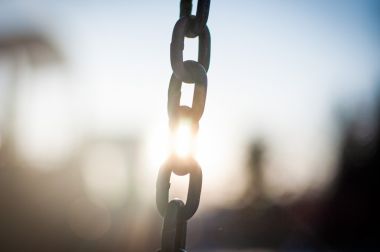This World Day Against Trafficking in Persons, Christians must act

When I was 10-years-old, I was fascinated by walking 'in step'. I would work my tiny little legs extra hard to walk 'in step' with my dad as we made the journey to school together, insisting that he shorten his stride so we could walk together in the pleasing cadence of synchronization. I loved the strange intimacy of walking alongside someone in the exact same rhythm. The simplicity and rhythm of it brought me deep joy.
But things falling into step aren't always good. As the Covid-19 pandemic has swept across the globe, what has fallen into step behind it is an increase in violence and exploitation of people in poverty.
Firstly, according to CGAP, 1.6 billion informal workers are expected to lose their work due to the Covid crisis, putting their – and their families' – security and wellbeing in a precarious position. Vulnerability can quickly lead to victimization – one form of which is trafficking.
Secondly, criminal justice systems are under major stress in many countries, meaning that traffickers see more opportunity to exploit people and a lesser likelihood of being held to account. Impunity leads to law-breaking with no fear of the consequences, and trafficking can be a lucrative business.
Vulnerability and impunity walking in step mean that human trafficking is a very real risk during the pandemic, and one that affects real people - including children. Children who should be taking delight in the simplicity of things like walking in step, but instead are trafficked, sold, and exploited – on boats, in brothels, in brick kilns, on the internet.
Children like Divine*, aged 10, who was brought to safety last month. He did not have the privilege of walking in step with his dad on the way to school, because he didn't go to school at all. Instead, he had been forced to work on Lake Volta in Ghana through the night – fishing, mending nets, scooping water from boats, and pulling in the day's catch.
He worked long hours through the night and in the afternoons as well, before police, the Department of Social Welfare, and International Justice Mission (IJM) identified him and brought him to safety. Afterwards, he simply said this: "The work was hard, too hard for me. I do not want to go back there."
And he won't have to – he and the other two children found with him are now safe and receiving aftercare, and one trafficker out of the five suspects arrested at the scene has already pleaded guilty and been sentenced to eight years' imprisonment, a result which will disincentivise other traffickers from continuing to exploit children.
However, the sad reality is that Divine is just one of millions of people across the world who are current victims or at risk of becoming victims of trafficking.
But there is hope.
IJM are seeing Christians around the world stepping up and seeking to a make a difference. In Ghana, for example, where Divine lives, 13 churches and para-church organisations have committed to walking in step towards a world free from human trafficking, as part of a new IJM-led coalition launching next month. The Christian Network for Ending Human Trafficking (CNEHT) is mobilizing Christian communities to tackle trafficking – in the areas of protection, prevention, and prosecution.
Today, on this World Day Against Trafficking in Persons, you're invited to walk in step with IJM and survivors around the world as together we seek to end slavery and violence in our lifetime. You can join this global movement for freedom by signing up for Freedom Sunday on 19 September, which will connect your church with churches around the world in a day of prayer, giving and action.
Or why not consider supporting IJM by becoming an IJM champion – our supporters have found all kinds of creative ways to fundraise, from running a marathon in crocs to rowing the Atlantic. Or you can join IJM in praying for an end to trafficking worldwide, and praising God for the amazing change we're already seeing. We look forward to walking with you on the journey towards a world where all are free.
* name changed for security reasons
Alianore Smith is Church Partnerships Manager at International Justice Mission, a global organisation that protects people in poverty from slavery and violence. IJM partners with local authorities in 24 programme offices in 14 countries to combat slavery, violence against women and children, and police abuse of power against people in poverty. IJM works with authorities to bring victims to safety, provide trauma-informed care to survivors, hold perpetrators accountable, and help strengthen public justice systems. Learn more about IJM UK at IJMUK.org











